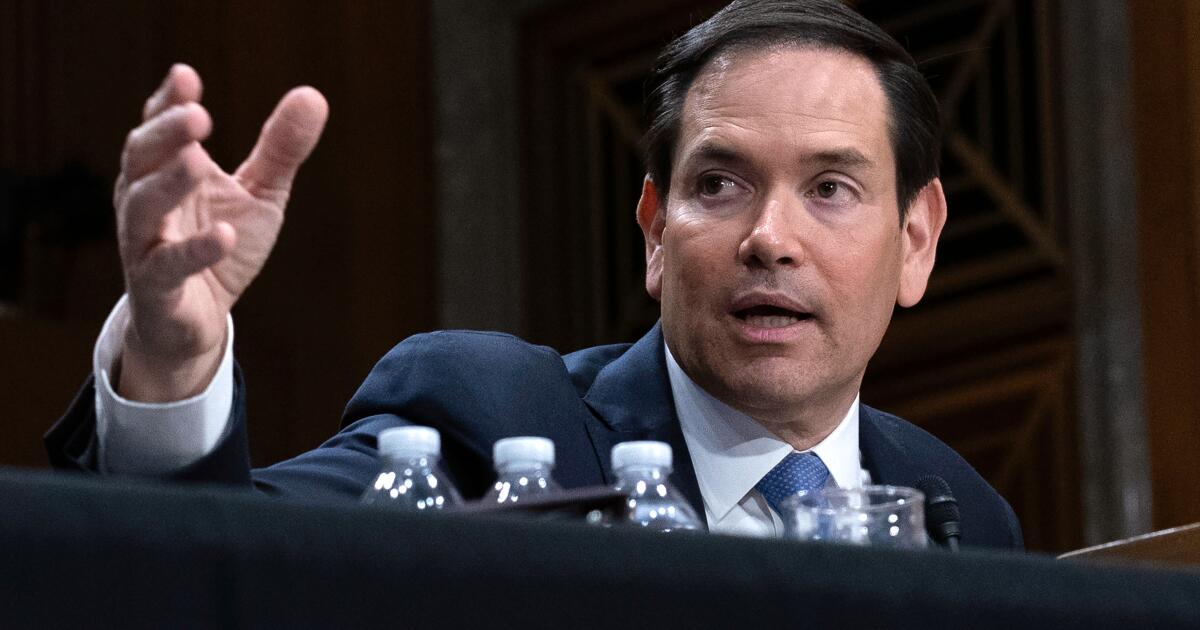WASHINGTON — Secretary of State Marco Rubio and Democratic senators sparred Tuesday over the Trump administration’s foreign policies, including on Ukraine and Russia, the Middle East and Latin America, as well as the slashing of the U.S. foreign assistance budget and refugee admissions.
At a Senate Foreign Relations Committee hearing, his first since being confirmed on the first day of President Trump’s inauguration, former Florida Sen. Rubio defended the administration’s decisions to his onetime colleagues.
He said “America is back” and claimed four months of foreign policy achievements, even as many of them remain frustratingly inconclusive. Among them are the resumption of nuclear talks with Iran, efforts to bring Russia and Ukraine into peace talks, and efforts to end the war in Gaza between Israel and Hamas.
He praised agreements with El Salvador and other Latin American countries to accept migrant deportees, saying “secure borders, safe communities and zero tolerance for criminal cartels are once again the guiding principles of our foreign policy.” He also rejected assertions that massive cuts to his department’s budget would hurt America’s standing abroad. Instead, he said the cuts would actually improve American status and the United States’ reputation internationally.
Sen. Jim Risch (R-Idaho), the committee’s chair, opened the hearing with praise for Trump’s changes and spending cuts and welcomed what he called the administration’s promising nuclear talks with Iran. Risch also noted what he jokingly called “modest disagreement” with Democratic lawmakers, who used Tuesday’s hearing to confront Rubio about Trump administration moves that they say are weakening the United States’ influence globally.
Yet Democrats on the Senate committee, including ranking member Jeanne Shaheen of New Hampshire, Chris Murphy of Connecticut, Tim Kaine of Virginia, and Chris Van Hollen of Maryland, took sharp issue with Rubio’s presentation.
Shaheen argued that the Trump administration has “eviscerated six decades of foreign policy investments” and given China openings around the world.
“I urge you to stand up to the extremists of the administration,” Shaheen said. Other Democrats excoriated the administration for its suspension of the refugee admissions program, particularly while allowing white Afrikaners from South Africa to enter the country.
In two particularly contentious exchanges, Kaine and Van Hollen demanded answers on the decision to suspend overall refugee admissions but to exempt Afrikaners based on what they called “specious” claims that they have been subjected to massive discrimination by the South African government. Rubio gave no ground.
“The United States has a right to pick and choose who we allow into the United States,” he said. “If there is a subset of people that are easier to vet, who we have a better understanding of who they are and what they’re going to do when they come here, they’re going to receive preference.”
He added: “There are a lot of sad stories around the world, millions and millions of people around the world. It’s heartbreaking, but we cannot assume millions and millions of people around the world. No country can.”
On the Middle East, Rubio said the administration has continued to push ahead with attempts to broker a ceasefire in Gaza and to promote stability in Syria.
He stressed the importance of U.S. engagement with Syria, saying that otherwise, he fears the interim government there could be weeks or months away from a “potential collapse and a full-scale civil war of epic proportions.”
Rubio’s comments addressed Trump’s pledge to lift sanctions on Syria’s new transitional government, which is led by a former militant chief who led the overthrow of the country’s longtime oppressive leader, Bashar Assad, late last year.
Lee and Knickmeyer write for the Associated Press.
